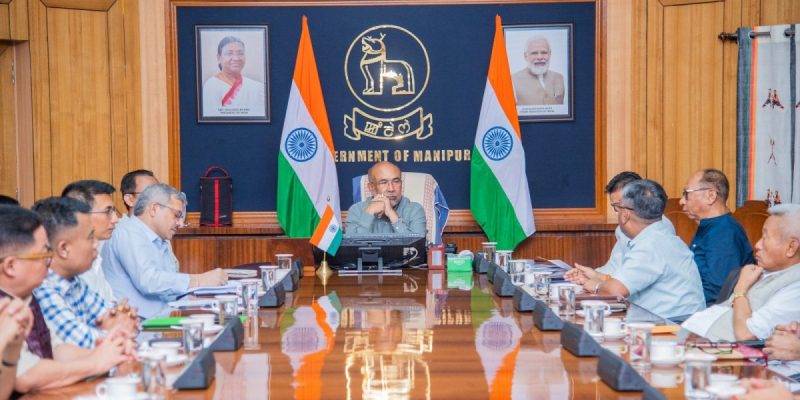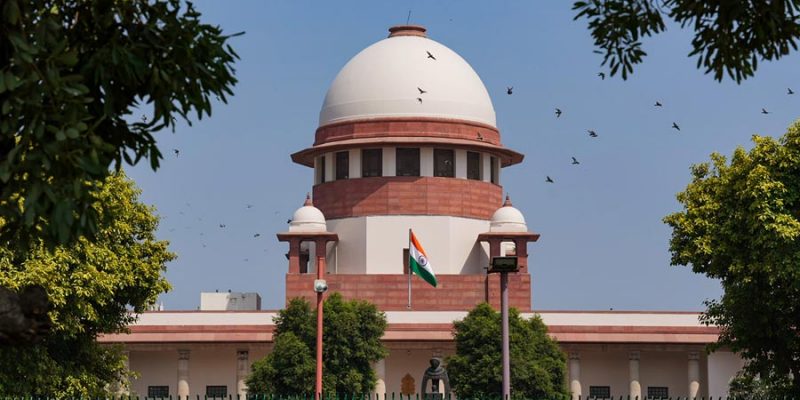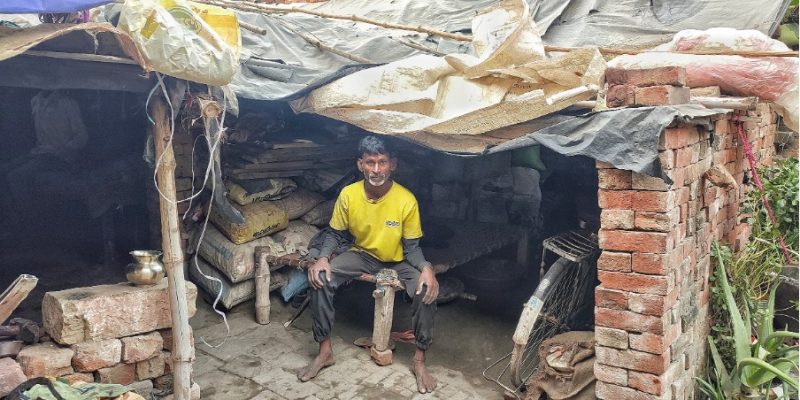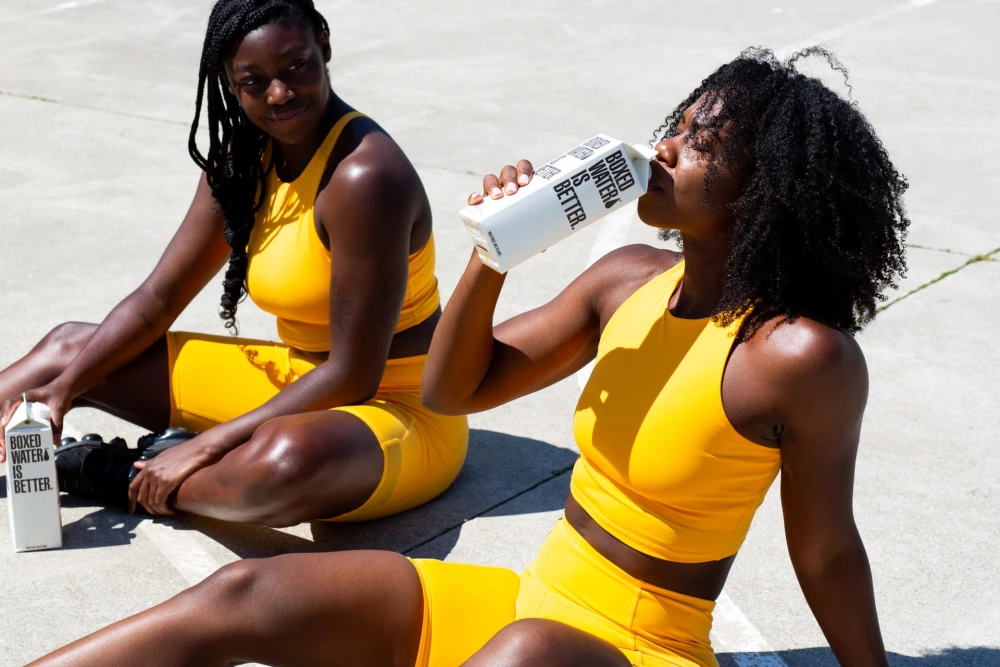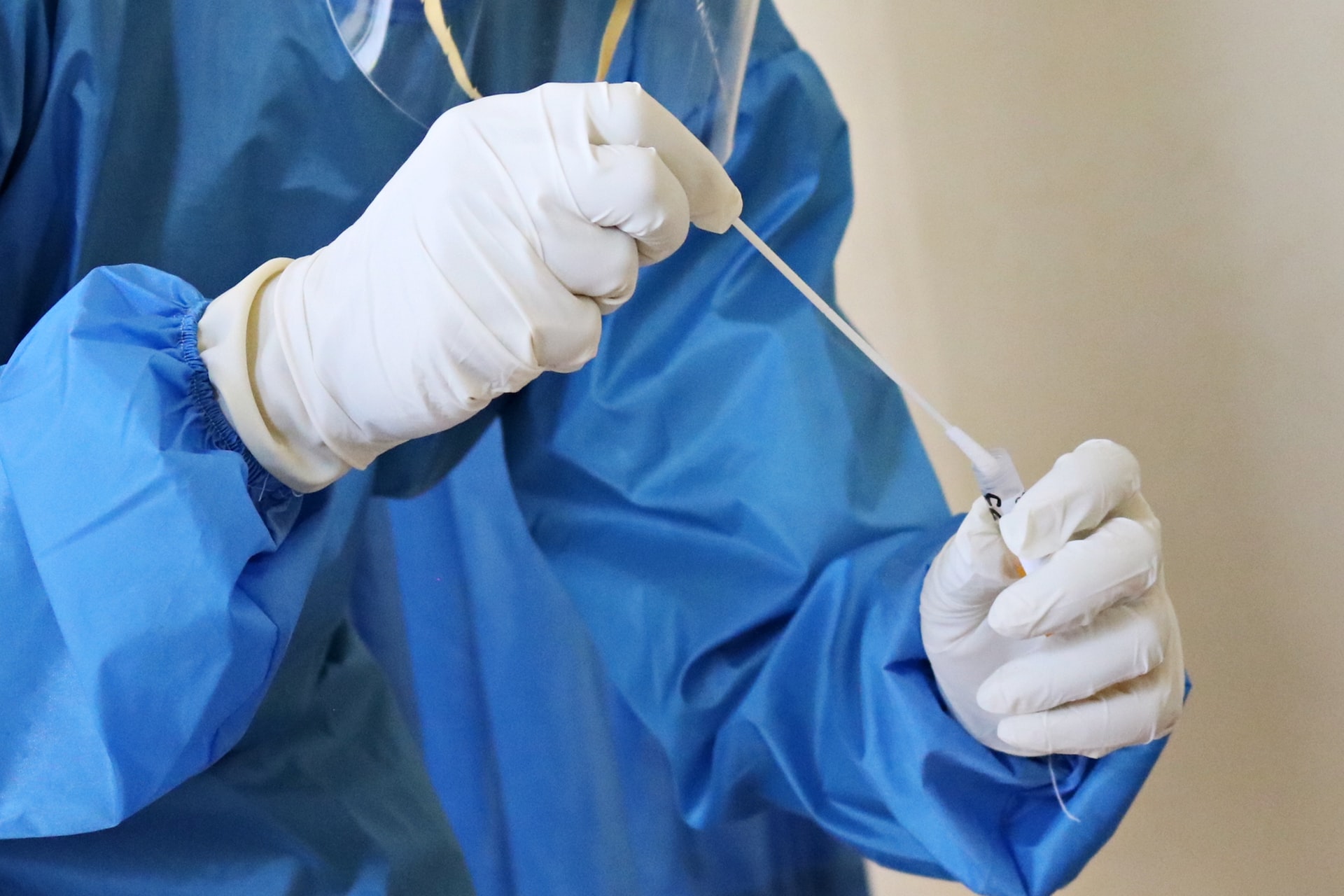Kerala: Lesbian Couple’s Harrowing Journey Shines Light on Continuing Dangers of ‘Conversion Therapy’
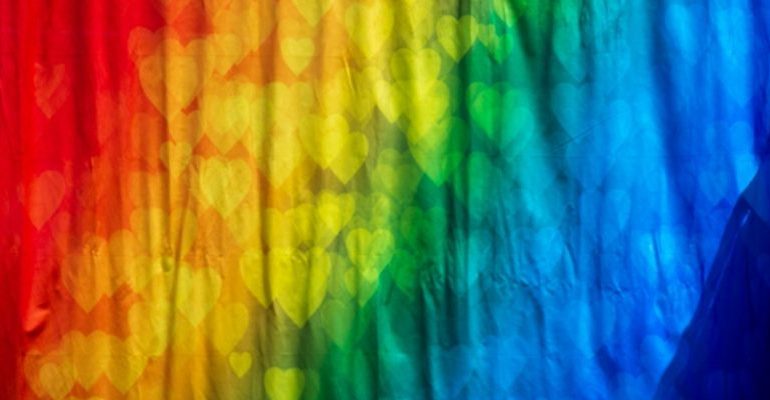
Ernakulam: The dangers and immorality of using ‘conversion therapy’ on LGBTQIA+ individuals – highlighted across the world – were brought forth in Kerala recently, in the case involving lesbian couple Afeefa and Sumayya Sherin. The case also points to blind spots in the judiciary’s understanding of threats queer people face.
Speaking to The Wire on the phone July 5, Afeefa described the aftermath of the forced conversion therapy her family made her undergo at a private hospital in Kozhikode. “I was unable to feel my legs while walking. I was forcefully medicated,” the 21 year old said. She paused multiple times as she spoke. In the hospital, she said, she was forcefully injected with medication after she refused to take them orally. “My appetite and sleeping patterns have been affected,” she said.
“As long as I was in the hospital, as days went on from 10 to 15, the dosage increased. Sumayya had already told the media that I will be subjected to conversion therapy,” Afeefa continued.
Today, Afeefa and Sumayya are together again – but the road here has been hard, and they still feel the effects of the violence Afeefa was subjected to.
The background
In January this year, Afeefa and Sumayya decided to come out with the help of Vanaja, a community-based organisation. The collective works for the rights of gender minorities and other oppressed groups.
On January 27, the two started living together in Ernakulam. Their families filed missing persons’ reports, but the couple was granted protection by the Malappuram judicial magistrate’s court.
About four months after they moved in together, on May 30, Afeefa’s family arrived and took her away. Not knowing where to go or what to do, and worried that Afeefa’s family may force her into conversion therapy, Sumayya decided to file a habeas corpus petition in the Kerala high court.
In Sumayya and Afeefa’s case and other cases they have worked on, queer activist and co-founder of Vanaja Collective M. Sulfath told The Wire, Vanaja collective has followed the existing rules of law to gain justice. “But at the police station or the government-run one stop centre, a negative approach to these young women was evident. They behave in a way that enhances all the violence we endure. We were forced to file a habeas corpus petition only because of the inaction and patronising approach by the police.”
Also read: Transgender Applicants to Police Forces Encounter Many Obstacles
“When we approach the police with the petitioner, seeking action, they tell us the woman is with her parents, so what is wrong with that? This inaction is the reason why we are forced to file a habeas corpus petition, mostly not affordable for us. The existing laws are not protective, that is one big challenge while handling cases like this. In the Sumayya-Afeefa case, they had already gained a court order and the involvement of the family happened at an unexpected moment. Even then, it is to be noted that retired police officials and social activists were involved in separating these two women. The law enforcing system and the family opposes the couple, so an immense challenge is created during crisis management. Their lives after rescue too remain a question, will they be attacked again? If they are detained again, who will be there to support them? I think the proper enforcement of existing laws itself will eliminate these challenges. The main problem is that they [the police] are bound by morality and beliefs which restrain them from enforcing the laws,” Sulfath said.
Court proceedings
After Sumayya filed a petition in the Kerala high court, the court agreed to senior advocate Babu Karukappadath’s request that Afeefa’s family be given 10 days to present her before the court. This was a questionable decision, given that the couple had been granted protection by the judicial magistrate.
When Afeefa was presented before the court, she reportedly told the judges that while she was in a relationship with Sumayya, she wanted to go home with her family. “The detenu was presented in the open court in the morning, and the judge said the matter would be heard in the chamber. It is written in the order that the detenu told the judge that she was in a relationship with Sumayya and now she wants to go with the family,” The Fourth’s court reporter Shabna Ziyad told The Wire.
Based on Afeefa’s statement, Justice P.B. Suresh Kumar and Justice Shobhana Annamma Eapan closed the petition on June 19 and said Afeefa would go back with her parents, as she herself had asked. In the local media, Afeefa’s statements were widely misreported – with claims that she had said she no longer wanted to be in a relationship with Sumayya. Soon after the court closed the petition, Sumayya received an SOS message from Afeefa – “I felt nothing,” she said, referring to the moment when she was brought to court.
Now, Afeefa is sad that the court did not take into account what kind of pressures and medication she may have been under while making her statement. “My vulnerability should’ve been considered,” she told The Wire.
Days after the court hearing, Afeefa managed to inform Sumayya through Afeefa’s mother’s phone that she had been forced into conversion therapy at Manohar Hospital, Kozhikode. Afeefa informed Sumayya that one Dr Mohan Sundaram told her that homosexuality is ‘against nature’ when she insisted that she wants to go back to Sumayya. “The doctor gave me a book on psychiatry to read. The book said homosexuality is a disorder. Even after reading the book I kept on telling the doctor and the counsellors at the Manohar Hospital that this is what I am and I can’t be changed,” Afeefa told The Wire.
On June 27, based on information from Sumayya, women’s protection officers went to rescue Afeefa, and reported that her family had been using force against her. The officers were surrounded by a crowd of men gathered near the house.
The police filed a case on the incident, but said that since the court had closed the habeas corpus petition, they require an order from the district collector to act on the issue. In the coming days, the family had to withdraw from this tussle as the police too got involved. Sumayya and Afeefa later revealed in an interview that a mediator had come in between and asked them to keep silent about the violence, if they wanted to live together in the future.
The dangers of ‘conversion therapy’
Naseema Nasrin, a queer rights activist and political analyst, condemned the court’s decision to allow Afeefa’s family 10 days before presenting her in court. “I felt like the judicial process didn’t take into consideration the danger of conversion therapy, which must be understood as a serious one. Mostly the violence on queer individuals would be meted out by the biological family. I think there is a problem in the court assuming that the woman will be safer with her parents. I felt the court ignored the possibility of conversion therapy in this case. Also, I wonder how a magistrate court’s vision was left unseen by the high court. To approve their rights, the court just had to acknowledge the fact that they both are adults,” Nasrin said.
Dr Shreya Mariam Salim of Thiruvananthapuram medical college conducted a survey among queer individuals to learn the persistence of conversion therapy for her PG course in psychiatry. During the survey conducted in 2021-2022, 130 participants responded. Forty-five percent of the queer individuals who responded to the survey said they were subjected to conversion therapy. In a paper published on their research in the Journal of Homosexuality, authored by Salim, Dr Lalchand Anilal and Dr Anil Prabhakaran talked about the challenges facing the social and physical health of queer individuals. The paper looks into the means through which ‘conversion therapy’ is carried out and its impacts. It acknowledged international studies that points out that the conversion therapy attempts made by parents trouble an individual and may lead to suicidal tendency, hurt dignity, drug usage, lowered self esteem etc.
Also read: Love in a Time of Intolerance: How Policy and Social Prejudice Are Holding Back the Romantic Indian
The study found that psychotherapy was the commonest method used for sexual orientation change (28.8%). As many as 47.5% of them self-prompted such attempts, while 37.3% were subjected to such attempts by their families. “This may be even more relevant in the Indian setting, where individual autonomy is often sacrificed to maintain family integrity,” the paper observed.
Conversion therapy is widely practiced in south India. In May 2020, Anjana Hareesh, a student from Taliparamba, Kannur who identified as bisexual, died by suicide after going through a harrowing episode of conversion therapy. Hareesh was subjected to conversion therapy by one Dr N.S. Moni, a Coimbatore-based psychologist. She was taken to Coimbatore by a regional organisation named Hindu Democratic Front. She was also taken to Karunasai, a psychiatric hospital in Thiruvananthapuram, and Shalom, a deaddiction plus mental health centre in Palakad.
Dr Moni considered homosexuality to be like addiction, a survivor of Moni’s conversion therapy had said in 2020. At that time, Moni’s consultation fee ranged from Rs 30,000 to Rs 40,000.
Previous reporting has shown that Dr Srinivas who works at the Kovai medical center hospital too does conversion therapy. Srinivas tells parents that homosexuality can be treated and cured. Dr N. Dinesh in Amrita hospital Kochi too has been accused of forced medication by several queer individuals and persons in interfaith and intercaste relationships. The World Health Organisation has excluded homosexuality from the list of mental illnesses, but the Indian medical field still treats it as a mental illness.
“In India, there are only very few studies that have been conducted on the issue,” Salim told The Wire. “Maybe this is the first study on conversion therapy that’s been carried out in India. We studied the impacts of conversion therapy on individuals and what are the mental health implications. We’ve relied on data on conversion therapy from other countries, on data from direct qualitative studies. Reasons that lead to conversion therapy are mostly pressure from families, religion, stigma, pressure to continue in a marital relationship, etc. Conversion therapy is illegal, considering the rights of a patient in the Indian Mental Health Care Act. I think more cases of conversion therapy are being reported now. We need to thoroughly follow up on such cases,” Salim said. Based on community-based organisation Queerala’s petition, the Kerala high court had given instructions to the government to implement action against those promoting conversion therapies.
Advocate Padma Lakshmi, a trans woman practicing in the Kerala high court, thinks that conversion therapy should be penalised. “There are psychiatric associations that oppose conversion therapy, but no law that penalises conversion therapy. Conversion therapy should be penalised,” Padma Lakshmi said.
Advocate A. Rajasimhan, a senior lawyer in the Kerala high court, agrees: “Conversion therapy is an illegal practice. Practitioners are punishable under IPC 326, the hospital must be shut down immediately.”
Ignoring queer people’s agency and choice
In her writ petition, Sumayya had pointed to a Kerala high court judgment from September 24, 2018. It was a petition filed by a woman named Shreeja for her partner, who had been taken into custody by her family even when there was a magistrate’s court order that allowed them to live together. Shreeja’s partner had been admitted to the government mental hospital in Peroorkada. The complainant could meet her partner in the hospital. The court realised the partner of the petitioner is being held against her will. A bench of Justice C.K. Abdul Rehim and Justice R. Narayana Pisharadi released a judgment underlining the free will of the detenu. There exist several other such cases where judges have noted that law enforcement cannot ignore queer people’s agency and free will.
Ahana Mekhal, a queer rights activist who works with community-based organisation Sahayatrika, says that law enforcement groups are still not free from the judgments based on social morality. With years of field experience of working to rescue queer individuals in parental custody, Mekhal said, “Social morality of those who function in the judicial system influence these cases. Even when the laws are protective, the judges have harassed us and spoken against the law. In the police station too, because of this perceived morality, they act so adamant. Even when they know it is someone else’s life and someone else’s rights, they can’t internalise certain things. There is a specific group of people who oppose the rights of queer individuals outright and such groups get support. …The police can convince the family to see what is right. But mostly, it is the police who takes the initiative to send the person back with the family. Not much has changed here. It is after these judgments [mentioned above] that some young police officers started understanding things. In the past three or four years, we are able to go to the police stations and talk to the police more easily – which is the result of a long struggle.”
Mrudula Bhavani is a journalist based in Ernakulam.


